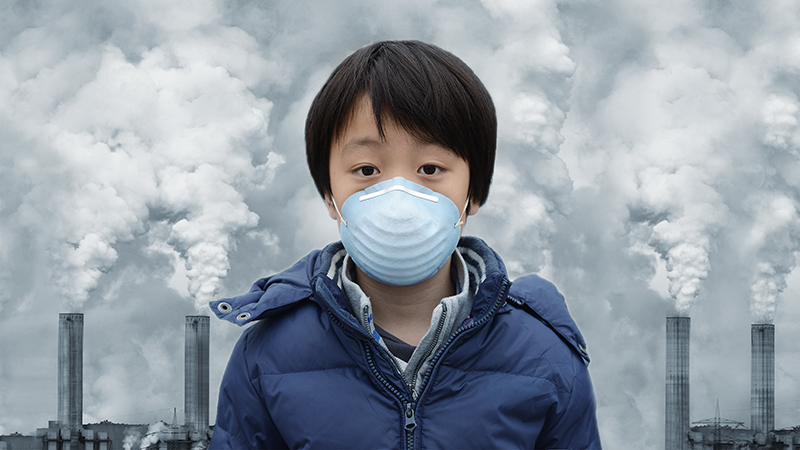Research Insights: Chinese media sets tone for polluters
The mediating role of the government and public in agenda setting

It is well established that the media have an impact on firms’ environmental behaviors. While stakeholder research often holds that this impact is direct, Zhi Tang, Ph.D., professor of management in Saunders College, demonstrates that the cause/effect relationship is more complex, as described in his co-authored article, “Can the Media Discipline Chinese Firms’ Pollution Behaviors? The Mediating Effects of the Public and Government,” published in the prestigious Journal of Management.
Zhi and his collaborator focused on two types of newspapers in China: official newspapers, sanctioned by the government, and commercialized newspapers, which are more objective in their reporting. They concentrated on stories relating to four major types of pollution: water, air, soil, and noise. They coded the “number of news reports that appeared in each type of major newspaper within one month after a pollution incident was first reported,” as well as “whether the company would provide a solution to its environmental problem within a month or did not provide any solution at all.”
The authors collected 209 cases for final analysis. Of these, the government took action in 165 cases: imposing fines, forcing firm leaders to resign, initiating lawsuits against the firm, requiring alterations of processes and operations, and shutting down the factory. The public, on the other hand, took group actions: staging street protests, bringing the company to court, getting the government involved, and boycotting the firm’s products. Ultimately, companies provided solutions to their pollution problem in 62 cases.
The authors determined that, in the Chinese institutional environment, primary stakeholders are motivated by different types of media. The government is motivated to act by coverage in official newspapers, while the public is spurred on by reporting in commercialized newspapers. “Furthermore, we found that the government’s actions mediate the relationship between official newspapers’ agenda-setting effects and firms’ solutions to their pollution incidents and that the public’s actions mediate the link between commercialized newspapers’ agenda-setting effects and firm solutions.”
Much previous research has focused on the media’s direct impact on firms’ social behavior. However, Zhi and his co-author argue that this assumption may be an oversimplification of the process. In many instances the impact is indirect, moderated by the government or the public.
“Failing to take into account the indirect impact of the media,” the authors conclude, “will provide an incomplete picture of the dynamics between the media and firms and will result in an exaggeration of the media’s power.
View article published in Journal of Management (2016) “Can the Media Discipline Chinese Firms’ Pollution Behaviors? The Mediating Effects of the Public and Government”
;












